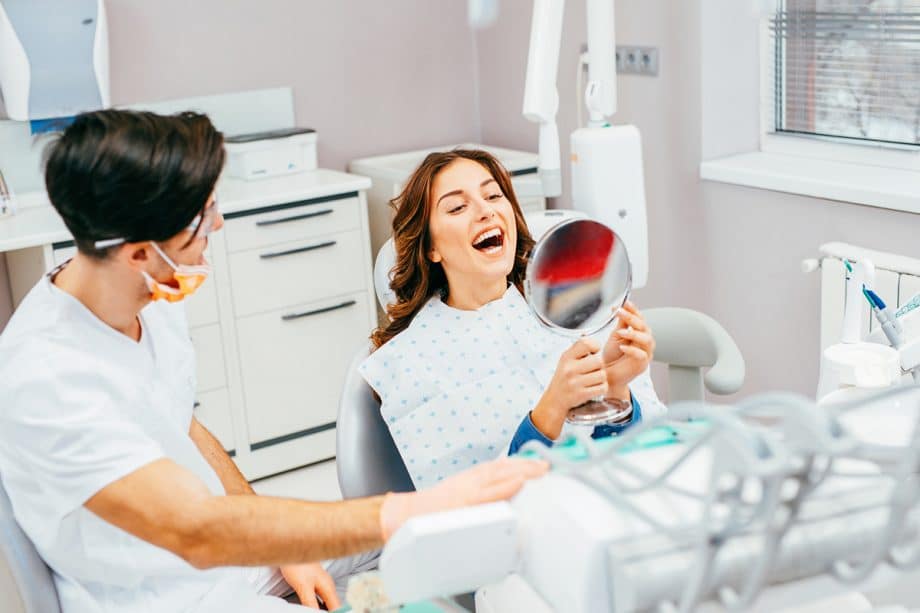Dental cleaning is an important tool to prevent cavities and improve your oral health. One of the best steps you can take to prevent cavities and preserve the health of your teeth is to schedule a routine professional cleaning from your dental team.
Regular Dental Cleanings are Important for Good Dental Health
Even if you practice the very best dental hygiene habits at home, eventually plaque will build up on your teeth. And, when plaque isn’t removed from brushing at home, it hardens into sticky tartar or calculus. These can only be removed with professional dental cleaning.
Why is this important? The germs that can cause gum disease and tooth decay are in the tartar and if not removed, they can lead to many different dental issues. After a cleaning, your dental hygienist polishes your tooth enamel for a smooth and clean surface that makes it difficult for new plaque and tartar deposits to form.
The Importance of Good Oral Hygiene at Home
Along with getting professional dental cleaning at least twice a year, to keep your teeth healthy, practice good dental hygiene at home. Brush your teeth for two minutes every morning and night, to remove the food debris and plaque that accumulates throughout the day or night.
Be sure to brush fronts and backs of all teeth, as well as the chewing surfaces which is
where plaque is likely to accumulate. And floss before or after brushing, going right to the gum line where your toothbrush can’t reach.
But Can Dental Cleaning Damage Your Teeth?
Dental cleaning cannot damage your teeth. In fact, what can harm your teeth is not having regular cleanings. While dental cleaning can cause a bit of discomfort if it’s been awhile between cleanings, there are no harmful methods, products, or side effects from professional cleaning.
What Does Dental Cleaning Involve?
A professional dental cleaning begins with your hygienist using metal instruments to scrape tartar and plaque from the tooth surface. If the layer of plaque on your teeth is hard, the hygienist may have to scrape more vigorously. But don’t worry, tooth enamel is very strong and cannot be scratched or chipped during cleaning. Remember that frequent cleanings mean less plaque, and less pressure that’s necessary when scaling teeth.
If cleaning is less frequent, your dental hygienist may have to scrape hard to remove the plaque, leaving teeth and gums feeling sensitive. It’s normal to feel some sensitivity for an hour or two.
And, remember that during the cleaning, your gums may bleed, which is also normal if flossing isn’t done regularly or it’s been awhile between visits.
Some patients may feel there’s a gap between two teeth after cleaning. This doesn’t indicate any damage to your teeth: it is likely there was a buildup of plaque between teeth, and once removed, the space between your teeth may feel larger than it should be to you.
Ready to Learn More about Dental Cleaning?
If you’re ready to learn more about dental cleaning, or you’d like to schedule a cleaning, your dental team at Howard Levitt DDS is here to help. Give us a call today!
